Xipeng Shen
CoCoPIE: Making Mobile AI Sweet As PIE --Compression-Compilation Co-Design Goes a Long Way
Mar 25, 2020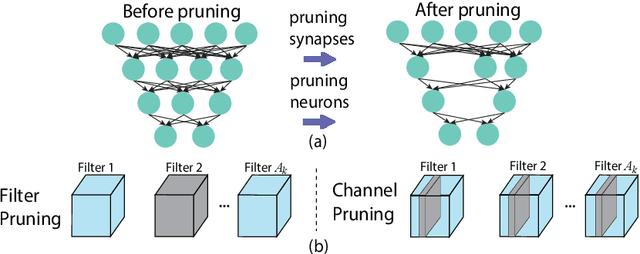
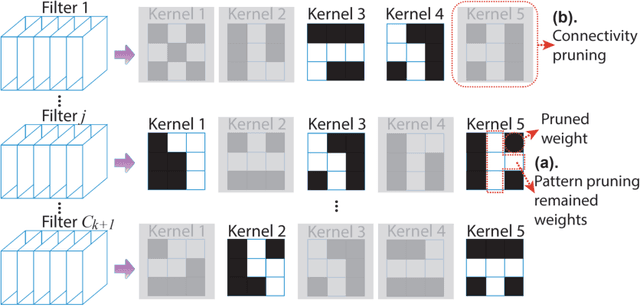

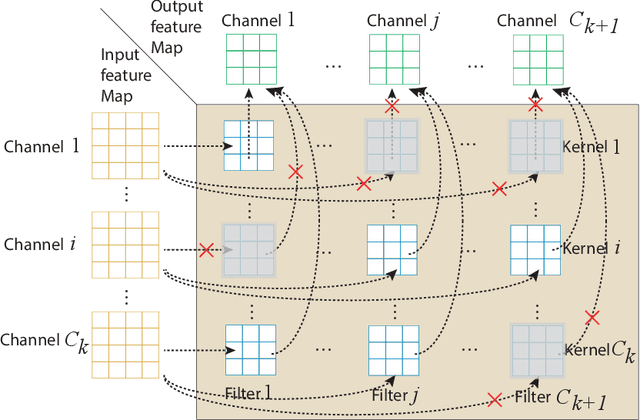
Abstract:Assuming hardware is the major constraint for enabling real-time mobile intelligence, the industry has mainly dedicated their efforts to developing specialized hardware accelerators for machine learning and inference. This article challenges the assumption. By drawing on a recent real-time AI optimization framework CoCoPIE, it maintains that with effective compression-compiler co-design, it is possible to enable real-time artificial intelligence on mainstream end devices without special hardware. CoCoPIE is a software framework that holds numerous records on mobile AI: the first framework that supports all main kinds of DNNs, from CNNs to RNNs, transformer, language models, and so on; the fastest DNN pruning and acceleration framework, up to 180X faster compared with current DNN pruning on other frameworks such as TensorFlow-Lite; making many representative AI applications able to run in real-time on off-the-shelf mobile devices that have been previously regarded possible only with special hardware support; making off-the-shelf mobile devices outperform a number of representative ASIC and FPGA solutions in terms of energy efficiency and/or performance.
In-Place Zero-Space Memory Protection for CNN
Oct 31, 2019
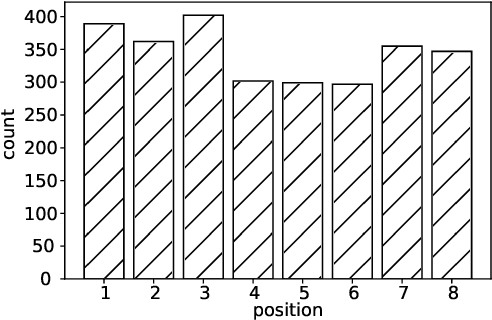
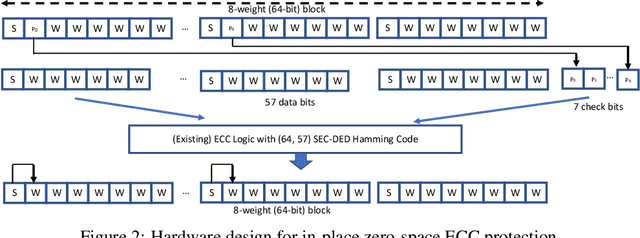
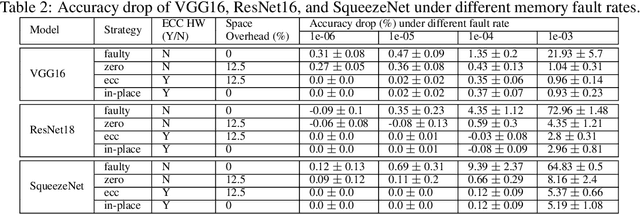
Abstract:Convolutional Neural Networks (CNN) are being actively explored for safety-critical applications such as autonomous vehicles and aerospace, where it is essential to ensure the reliability of inference results in the presence of possible memory faults. Traditional methods such as error correction codes (ECC) and Triple Modular Redundancy (TMR) are CNN-oblivious and incur substantial memory overhead and energy cost. This paper introduces in-place zero-space ECC assisted with a new training scheme weight distribution-oriented training. The new method provides the first known zero space cost memory protection for CNNs without compromising the reliability offered by traditional ECC.
How to "DODGE" Complex Software Analytics?
Feb 05, 2019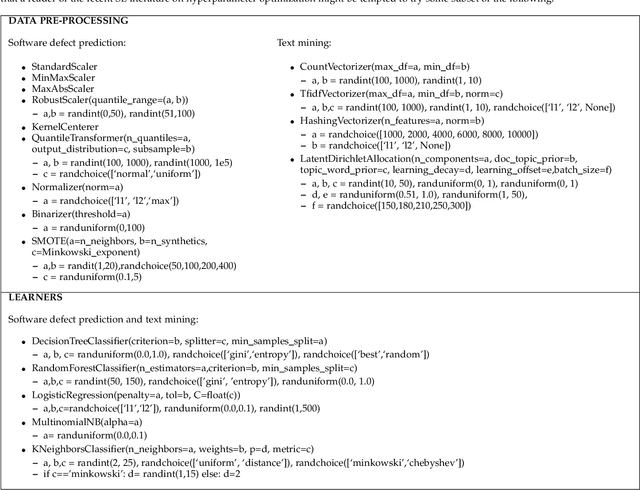
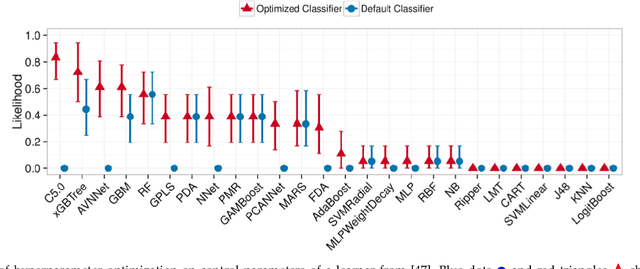
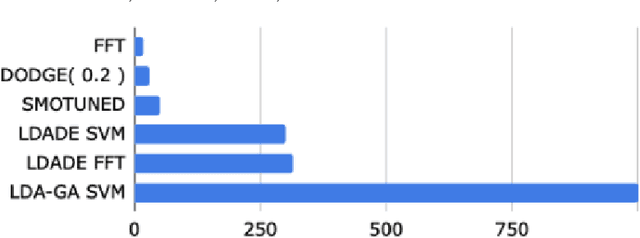

Abstract:AI software is still software. Software engineers need better tools to make better use of AI software. For example, for software defect prediction and software text mining, the default tunings for software analytics tools can be improved with "hyperparameter optimization" tools that decide (e.g.,) how many trees are needed in a random forest. Hyperparameter optimization is unnecessarily slow when optimizers waste time exploring redundant options (i.e., pairs of tunings with indistinguishably different results). By ignoring redundant tunings, the Dodge(E) hyperparameter optimization tool can run orders of magnitude faster, yet still find better tunings than prior state-of-the-art algorithms (for software defect prediction and software text mining).
 Add to Chrome
Add to Chrome Add to Firefox
Add to Firefox Add to Edge
Add to Edge